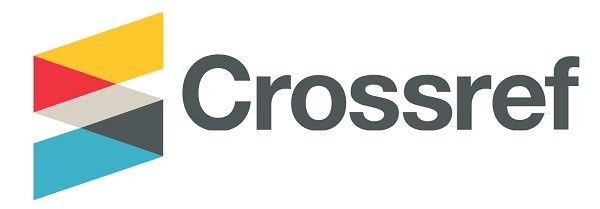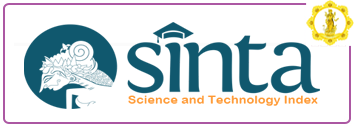Meningkatkan Mutu Nilai Kemanusiaan Pada Anak-Anak Melalui Satua Men Tiwas Teken Men Sugih (Sebuah Kajian Semiotika)
DOI:
https://doi.org/10.25078/jpm.v6i1.1289Keywords:
Satua (story telling), Men Tiwas Teken Men Sugih, Semiotic ApproachAbstract
There is one way to form a child’s character is with a tale or a story where in Balinese life we called satua or masatua. Satua is a part of lisan literary once as a work of grain Graine literature, unattached to the temple and rhythm as well. Although satua is as one of the local obscension wisdom of the ancestral legacy and has been there for a long time, but this is still relevant to be used as one of the tools in developing way of life, personality, characteristics and a wisdom for people in Bali and of course based on the rule as a Balinese in the community. One of the best example of the satua called “Men Tiwas Teken Men Sugih” or the life between the poor and the rich. By using semiotic Peirce approach, and through the way of life from the poor family in the character, this article would emphasise a moral message regarding the behavior of the decreators. By this means that we can take an example to educate the young children what is the meaning of life and also to increase the quality of humanity to child
Downloads
References
Adhi Dwipayana, I. K., & Sidi Artajaya, G. (2018). Hegemoni Ideologi Feodalistis dalam Karya Sastra Berlatar Sosiokultural Bali. Jurnal Kajian Bali (Journal of Bali Studies), 8(2), 85–105. https://doi.org/10.24843/jkb.2018.v08.i02.p06
Andayani, Ni Made Juli; Linggih, I Nyoman; Wiradnyana, I. M. (2017). Satua Cupak teken Grantang (Pamastika Psikologi Tokoh). Jurnal Penelitian Agama Hindu, 1(1), 1–4. https://doi.org/http://dx.doi.org/10.25078/jpah.v1i1.122
Indhra, Feerlie Moonthana; Karim, M. N. (2018). Sastra Lisan Krinok : Kajian Struktural dan Semiotik. Dikbastra Jurnal Pendidikan Bahasa Dan Sastra, 1(1), 65–78. https://online-journal.unja.ac.id/dikbastra/article/view/5834
Laksmi, N. L. G. E. (2014). Tutur Ardhasmara Analisis Struktur dan Semiotika. Humanis Journal of Arts and Humanities, 7(1), 1–8.
Piliang, Y. A. (2004). Semiotika Teks :Sebuah Pendekatan Analisis Teks. MediaTor Jurnal Komunikasi, 5(2), 189–198. https://doi.org/10.29313/MEDIATOR.V5I2.1156.G715
Pora, S. (2014). Tinjauan Filosofis Kearifan Lokal Sastra Lisan Ternate. Jurnal UNIERA, 3(1), 112–121. https://journal.uniera.ac.id/pdf_repository/juniera69-3WWxODa92l-F00MRMA5jlFZkh.pdf
Pradopo, R. D. (2010). Beberapa Teori Sastra, Metode Kritik, dan Penerapannya. Pustaka Pelajar.
Raco, J. R. (2010). Metode Penelitian Kualitatif (Jenis, Karakter, dan Keunggulannya). PT. Grasindo.
Santosa, P. (2012). Kearifan Budaya dan Fungsi Kemasyarakatan dalam Sastra Lisan Kafoa. METASASTRA: Jurnal Penelitian Sastra, 5(1), 67–82. https://doi.org/10.26610/metasastra.2012.v5i1.67-82
Setiawan, A., & Maria M, H. E. H. (2020). Analisis Nilai Pendidikan Moral Novel Rembulan Tenggelam di Wajahmu : Pendekatan Semiotik Peirce. Jurnal Pembelajaran Bahasa Dan Sastra Indonesia , 1(1), 8–17. https://ojs.unm.ac.id/Indonesia/article/view/12390
Wibowo, I. S. W. (2013). Semiotika Komunikasi. Mitra Wacana Media.









